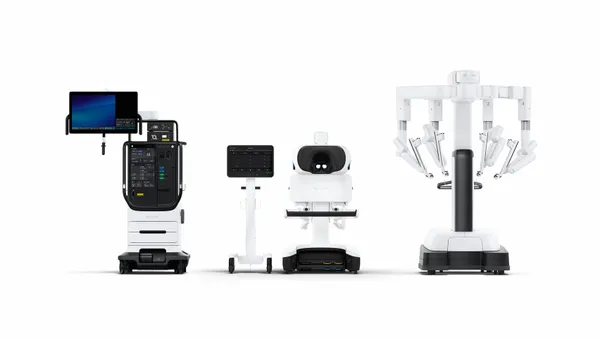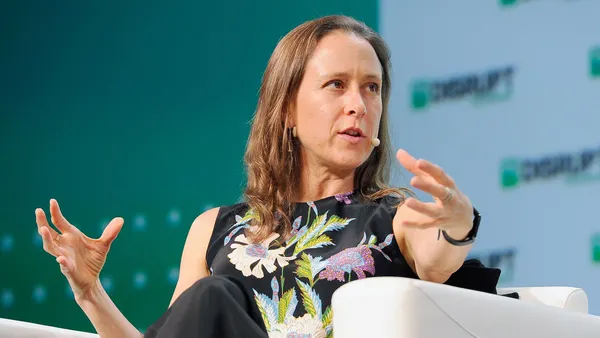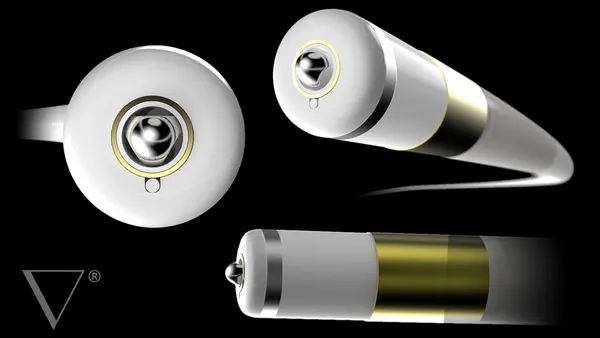A last-ditch effort by Boston Scientific to convince the White House to reverse course on a CMS proposal to cut Medicare reimbursement for a procedure that uses its device to treat patients with moderate degenerative lumbar spinal stenosis appears to have fallen flat.
In a private meeting with the Office of Management and Budget days before the release of CMS' hospital outpatient payment final rule, four Boston Scientific executives argued the proposed cut in payment for procedures inserting its Superion Indirect Decompression System would deter doctors from using the procedure to reduce reliance on opioids for chronic pain relief.
In June, Boston Scientific acquired Vertiflex and its Superion system for $465 million in cash, with additional payments potentially on the horizon if certain milestones are achieved. The device, which aims to alleviate pain by creating spaces between spinal vertebrae to reduce pressure on nerves, gained premarket approval from FDA in 2015 for patients who are not responding to non-operative treatment like steroids or oral pain drugs after at least six months.
In a PowerPoint presentation to OMB officials, Boston Scientific argued that one hospital disproportionally skewed perceived costs associated with the procedure, taking up 16% of all claims in 2018. The executives told OMB the hospital in question has already taken steps to adjust future claims, and therefore moving the code "would create unintended payment instability."
The presentation echos formal comments Boston Scientific provided to CMS' comment docket for the outpatient payment proposed rule.
"One hospital's claims are driving the reduction in geometric mean cost for CPT Code 22869 and impacting CMS' proposed payment for the procedure in 2020. Given that the hospital is in the process of correcting the issues causing charges and associated geometric mean costs to be so low, it is highly likely that CMS will see a return to prior consistency," wrote Maria Stewart, vice president of health economics and market access at Boston Scientific.
But CMS forged ahead with the proposal to reassign the procedure to a lower payment classification in its final rule despite the request, saying it depends on hospitals to accurately report HCPCS codes.
"While we recognize the concerns that the commenters have described, it is generally not our policy to judge the accuracy of hospital coding and charging for purposes of ratesetting," CMS said in its final rule.
The change, Boston Scientific said in a disclosed document, will result in a 22% drop in reimbursement for the procedure when performed in outpatient or ambulatory settings. In outpatient hospital settings, procedure reimbursement would drop from $15,402 in 2019 to $11,960 in 2020, and in ambulatory surgery center settings, it would fall from $12,598 in 2019 to $9,780 in 2020.
In a statement to MedTech Dive, Boston Scientific said it is disappointed CMS chose to cut payment for the minimally-invasive procedure. The company plans to work with CMS to advocate for revised payment in 2020.
"Boston Scientific remains committed to ensuring access to evidence-based interventional therapies for chronic pain, particularly during this time of unprecedented public health crisis from opioid abuse and addiction," spokesperson Kate Haranis said in an email.
Boston Scientific CEO Michael Mahoney told investors on the company's Oct. 23 earnings call the Veriflex platform is seeing growing demand and is on track to contribute $60 million in 2019 sales. But he noted the spinal cord stimulator marketplace is weaker than in the past. It is unclear what impact the new rates will have on sales of the device once they take effect.
"Our Vertiflex acquisition is really exceeding our deal model," Mahoney said. "Overall, the marketplace still is clearly not to the levels that it was in 2018 and historical."













